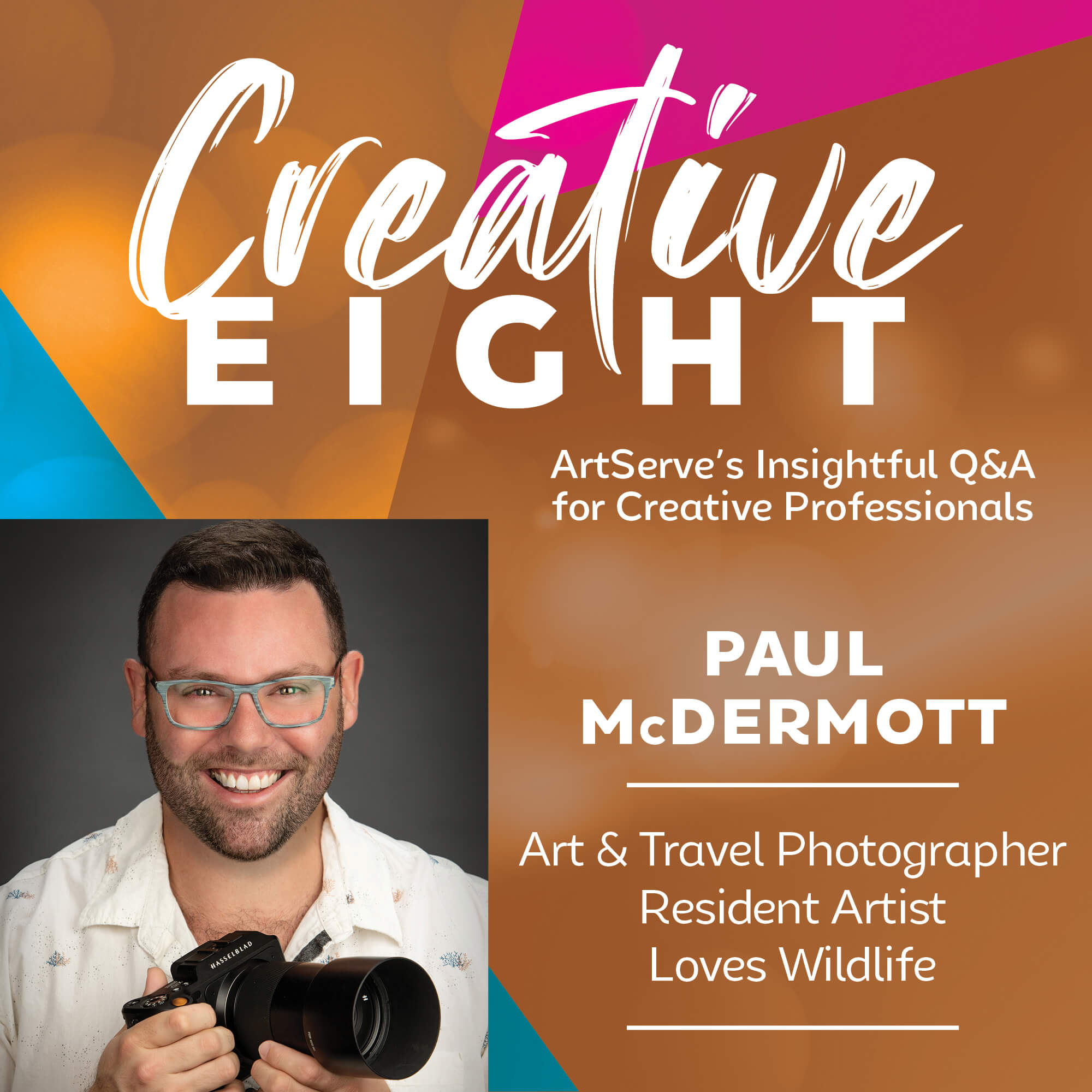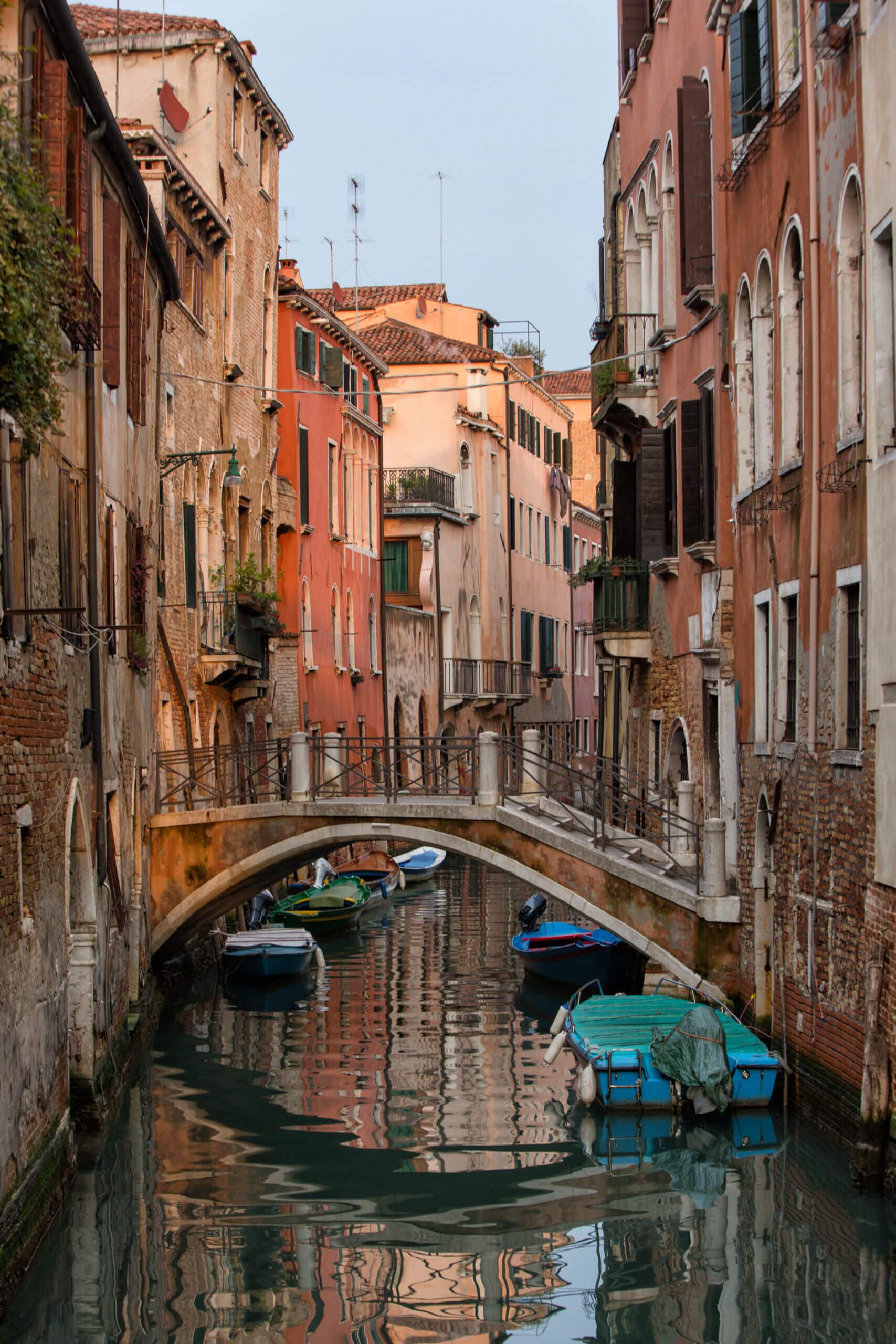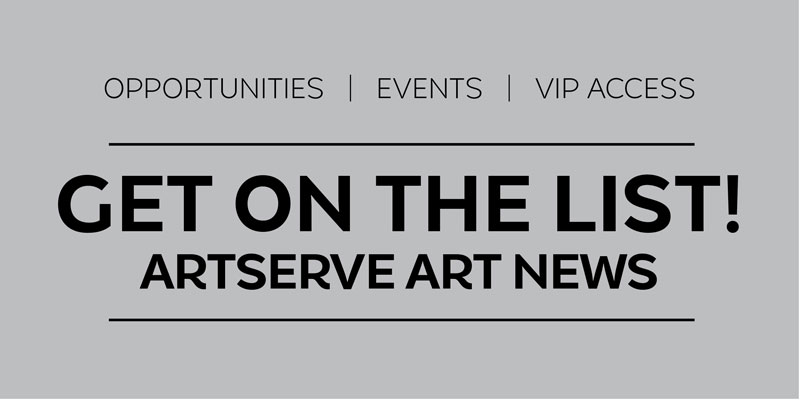CREATIVE EIGHT
8 Questions with Paul McDermott


1. What situation or person motivated you to pursue art?
My dad, Michael, was my biggest influence in becoming a photographer. He always wanted to be a lawyer but he listened to people’s judgement that he was too old to get into law. Not pursuing his dream was his biggest regret.
My dad never swore so I remember it clearly when he told me point blank that I if I was going to f*** up at any point in my life, now was the time. I was applying to college and struggling with picking my major. He instilled in me that if I pursued my dreams and failed I could always go back to school yet if I built a career it would be difficult to give up what I built to chase my passion. So I went to school for photography and have never looked back.
Thank you, Dad.
2. From where do you draw your inspiration to create art?
The world is such a beautiful place. Einstein once said, “There are only two ways to live your life. One is as though nothing is a miracle. The other is as though everything is a miracle.” I choose the latter. Everything in the world is an expression of art. My gift is in offering my perspective by setting my attention towards something poignant and capturing it to share with humanity.
3. What emotion are you trying to create for your audience through your art?
I don’t try to create any specific emotion from my audience. Each person has their own unique experience which isn’t mine to direct. My agenda is purely for people to experience and appreciate. This is why I don’t title my work. Labels offer bias and influence perspective. I offer insight to my own personal experiences and hope that it is integrated rather than overriding the emotions that come up.
4. Does an artist have an obligation to make a statement with their art?
I don’t believe artists should have an obligation to make any statement with art. Art is what you make of it and art is in the eye of the beholder. Making a statement holds art as an expression of the artist. Not making a statement holds it as an expression of the observer. There is space for both.
5. Was there ever a time when giving up was the right thing to do?
There are always great times to quit. As an artist you have an unconventional job. There’s a great deal of pressure to produce yet sometimes you find yourself uninspired. This is a great time to give up on “trying” and let go of the emotion charge of the pressure. When the pressure is released it will free up your attention to either come at the same project with a new perspective or flow into something new.
6. Is there something in your past career that would surprise people?
Before committing to being an artist I was an internationally award winning portrait photographer and had worked at one of the top wedding photography studios in the world. I was also known as one of the best newborn photographers in South Florida. Despite the accolades, the biggest thing people seem surprised by is that I never had a career outside of photography.
When I launched my own studio I didn’t understand why people asked what else I did. It was peculiar to others for someone to do photography full time. For me it was peculiar to think there was any other option.
7. What do you see as the most important attributes of a successful artist?
Artists have an identity of being “different” and “special” which allows us to separate ourselves from everyone else and forget that we are building a business and a brand. It’s a faulty mentality that limits our thinking when realistically there is no difference between an artist’s success and anyone else’s. It is the model of success that works for tech gurus, lawyers, entrepreneurs, and artists all alike.
We all need to be fully committed and passionate about what we do. If you love being in the process of expanding yourself and growing success is a byproduct and obstacles in the way become playful challenges to overcome. My advice is to let go of the artist ego and treat your name as a business. How can you make your business thrive?
8. What is the most valuable life lesson you learned from creating art?
Art was always a selfish process for me. I loved to create and document profound experiences. That was where I ended. My biggest lesson came in sharing my work. Why wouldn’t I share my love and passion for life? Observers become awe struck and completely engaged in the experience. Viewers live vicariously through my lens. Collector’s thoughts quiet as they become present with the moment of time and space as if there themselves.
There is no greater gift to myself and others than being this conduit of experiences. Sharing moments gives me purpose and is my driving force to take my craft to new domains.
ARTIST CONTACT
www.pauliseverywhere.com
hello@pauliseverywhere.com
Facebook
Instagram
954-769-0784



